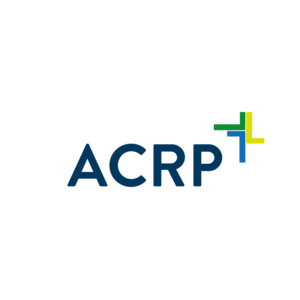Thanking members for playing a “pivotal role” in the success of the Association of Clinical Research Professionals (ACRP), Erika Stevens, MA, chair of the Association Board of Trustees (ABoT) for 2021, lauded the organization’s diversity as one of its greatest strengths during the ACRP Annual Membership Meeting on October 20. “Each of you bring unique perspectives and experiences” that strengthen ACRP and the broader clinical research effort, Stevens told attendees.
Reporting on a growing membership roster, solid financial condition, and exciting plans for the future, Stevens, ACRP Executive Director Susan Landis, and other ABoT members stressed the best days are yet to come for both the organization and the clinical research profession.
“We are a special community,” said incoming ABoT Chair Dave Morin, MD, FACP, CPI, FACRP, currently vice chair of the board.
“ACRP’s phenomenal community of diverse members” contributed to the successful development of vaccines and other treatments to battle the COVID-19 pandemic, Stevens said. That work has put clinical research on the front pages of newspapers and as the lead item on the evening news as researchers were praised for their important work, she noted.
“Clinical researchers are providing hope for the end of this terrible pandemic,” Morin added.
The pandemic also put a spotlight on a number of areas in the healthcare space—and ACRP responded, ABoT members noted.
“The pandemic exposed the health disparities in this country and highlighted the need for diversity in clinical research,” said R’Kes Starling, RPh, MBA, chair of the ACRP Diversity Advisory Council (DAC). The DAC held its first formal meeting last November and has outlined an ambitious agenda to assist ACRP in making the clinical workforce more diverse, he said.
The 26 members working with the DAC are an “august body” chosen intentionally to “represent stakeholders across the entire clinical research industry,” Starling said.
The DAC will recommend strategies to recruit and retain outstanding, high-quality clinical research professionals and students from historically underrepresented groups. It will also work to create a culture of inclusive excellence for the clinical research and life science community, Starling said.
ACRP also helped members coping with the realities of conducting clinical trials during a pandemic. “I was really impressed with both the amount and quality of education content ACRP provided over the past year,” said ABoT member Christine Senn, PhD, CCRC, CPI, ACRP-CP. “My team and I couldn’t have made it through [the pandemic challenges] without ACRP, and with all the recent industry changes we certainly can’t live without ACRP now.”
Stressing the importance of education, Landis said ACRP’s commitment to enhancing an already robust program will be a top priority in 2022. Landis also spoke to the value of ACRP Chapters and a renewed commitment to engaging and building trust with these important ambassadors for carrying word of ACRP’s mission and resources to other clinical research professionals in their regions.
Sergio Armani, treasurer of the ABoT, reported that ACRP is on “solid financial footing,” and noted how effectively the organization pivoted in 2020 when the pandemic forced cancellation of a physical conference. In response, ACRP quickly developed a series of successful online conference programs which received high marks from attendees, he noted.
Armani also reported that ACRP made an important investment in a new association management system, which will provide “a much better member experience across all digital platforms.”
Norbert Clemens, MD, PhD, CPI, ACRP-PM, FACRP, chair of the Board of Trustees for the Academy of Clinical Research Professionals (The Academy), offered a report on ACRP’s certification program, which includes 1,171 new certificants in 2020 and more than 35,000 since the program’s inception.
The Academy’s ongoing mission is to “maintain high standards of credentialing programs, enrich awareness of these programs, enhance competency for credentialed professionals in clinical research, and sustain the organization’s viability,” Clemens told attendees.
“Being ACRP-certified makes me a better clinical researcher, and that’s a really great feeling,” added attendee Jennifer Davis, CCRA, a clinical trial manager with ICON plc. “Earning my certification means I’m an accomplished professional with the knowledge needed to lead and inspire world-class teams of researchers.”
Morin closed the meeting by thanking ACRP members and staff for their commitment to quality clinical research. He added that he will help lead efforts in 2022 to further establish ACRP as a leader in clinical research professional workforce development and to provide a “delightful” member and certificant experience.
Author: Michael Causey



